Education
![]()
- Listen to the Earth
-
地球の声を聞こう [NHK]
"Listen to the Earth" is a disaster prevention series where children and adults alike are encouraged to give serious thought to the topic. The islands of Japan continue to be assaulted by various natural disasters. For instance, many precious lives were lost to the Great Hanshin-Awaji Earthquake and Great East Japan Earthquake alone. To better deal with these disasters, children and adults must fully understand the mechanism behind natural disasters and think through what actions must be taken to protect lives. By properly comprehending the horrors of nature and sharing the sorrow associated with losing loved ones, this series sheds light onto disasters that affect humans, including earthquakes, tsunamis, typhoons and volcanic eruptions. Its objective is first to have people properly understand why such disasters occur. Then, based on this understanding, the viewers are given guidance as to what actions are required to protect oneself and one's family. On the topic of earthquakes, seismologist Satoko Oki of Keio University's Faculty of Environment and Information Studies offers valuable information. As a frontrunner in this field, she thoroughly teaches the mechanisms of natural disasters with the use of images, computer graphics and experiments.
 How to Stay Safe in a Flood
How to Stay Safe in a Flood
ED231711![]()
河川氾濫に備えよう [NHK]
![]()
![]()
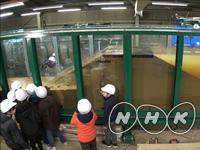
|Length : 10 |Year : 2017 |
In Japan, where roughly half the population is located in areas that are at risk of flooding, everyone should be aware of the risks flooding poses. We think about how to guard against a flood.
 How to Stay Safe When a Typhoon Hits
How to Stay Safe When a Typhoon Hits
ED231710![]()
自分の町を知って台風に備えよう [NHK]
![]()
![]()
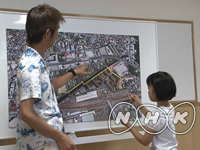
|Length : 10 |Year : 2017 |
Typhoons can cause flooding, landslides, storm tides, and other devastating phenomena. Figure out the places in your area that would be dangerous, and then make a “hazard map.”
 Being Prepared for An Unexpected Volcanic Eruption
Being Prepared for An Unexpected Volcanic Eruption
ED231709![]()
突然の噴火に備えよう [NHK]
![]()
![]()
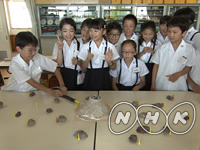
|Length : 10 |Year : 2017 |
So-called “phreatic” eruptions can be hard to predict. If one happens when you’re nearby, how do you keep yourself safe? We explore that question through experiments using a model volcano.
 What Happens Before a Volcano Erupts?
What Happens Before a Volcano Erupts?
ED231708![]()
噴火の前に何かが起きる? [NHK]
![]()
![]()
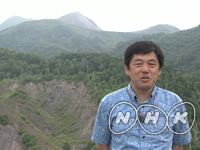
|Length : 10 |Year : 2017 |
What happens to a volcano before it erupts? Through experiments, we learn about the warning signs of an eruption, such as earthquakes and ground deformation.
 What Causes Volcanic Eruptions?
What Causes Volcanic Eruptions?
ED231707![]()
噴火のしくみを学ぼう [NHK]
![]()
![]()
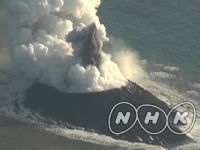
|Length : 10 |Year : 2017 |
Learn what causes volcanic eruptions, and learn tips to keep yourself safe in the event of an eruption.
 Predict the path of typhoons
Predict the path of typhoons
ED231406![]()
台風の進路を予測しよう [NHK]
![]()
![]()
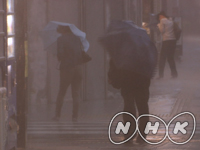
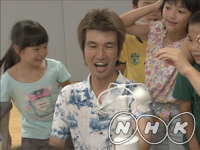
|Length : 10min. |Year : 2014 |
Typhoons pass by Japan every year between summer and autumn, causing widespread damage. But typhoons are actually a predictable natural disaster. Meteorologist Kosaku Moteki explains how to read typhoon course forecast maps and how typhoons are born and develop in an easy-to-understand way.
 Learn how tornados are formed
Learn how tornados are formed
ED231405![]()
竜巻の正体を知ろう [NHK]
![]()
![]()
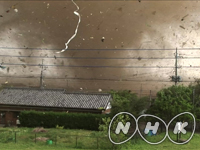
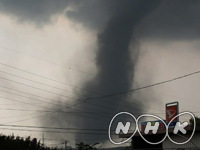
|Length : 10min. |Year : 2014 |
Why do tornados occur? We go to the meteorological museum in Tokyo with weather forecaster Kyoko Sasaki to see a device that creates tornados, while investigating how they form. It’s very difficult to predict just when and where a tornado will occur. Learn ways to protect yourself and how to seek shelter from a tornado.
 Protect yourself from lightning
Protect yourself from lightning
ED231404![]()
雷から身を守ろう [NHK]
![]()
![]()
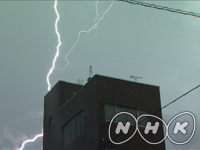
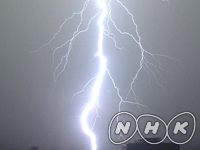
|Length : 10min. |Year : 2014 |
We visit a facility with weather forecaster Kyoko Sasaki where you can see lightning being made, and learn about its mechanisms. We also take a quiz on how to protect yourself from lightning by answering questions such as ‘will you be safe if I don’t wear metal accessories?’ and ‘can you escape lightning by standing under a tree?
 Our Living Planet
Our Living Planet
ED231303![]()
地球の声を聞こう | 地球は生きている [NHK]
![]()
![]()
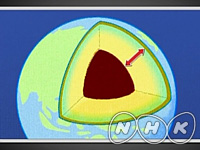
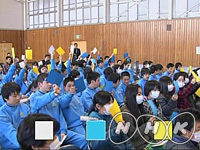
|Length : 10min. |Year : 2013 |
The movement of Earth's interior, including the movement of mantle is explained in a simplified manner. By learning the movements of earth, viewers are taught that earthquakes occur because Earth is a living planet, and that earthquakes are events that cannot be stopped or avoided, leaving the perspective to accept earthquakes for what they really are.
 What causes earthquakes?
What causes earthquakes?
ED231302![]()
地球の声を聞こう | 地震はなぜ起こるの? [NHK]
![]()
![]()
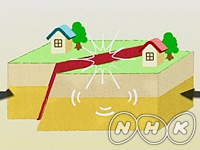
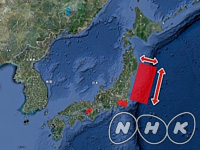
|Length : 10min. |Year : 2013 |
The viewer gains a better grasp of terms like "magnitude" and "seismic intensity", receives insight on how earthquakes occur, and learns how to put this knowledge to use. For instance, viewers are informed that the size of an earthquake is determined by how large an area of rock is ripped apart beneath the surface, and are further cautioned to be aware that how long the shaking continues is crucial.
 What do seismic waves tell us?
What do seismic waves tell us?
ED231301![]()
地球の声を聞こう | 地震波が教えてくれること [NHK]
![]()
![]()
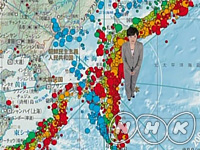
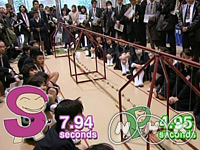
|Length : 10min. |Year : 2013 |
Using the earthquake early warning system as a theme, we learn about the nature of "seismic waves". In order to explain seismic waves, that are not visible to the naked eye, experimental apparatuses are set up to give better visualization, and characters Mr. P and Mr. S are introduced. Earthquakes and its mechanisms are explained in an easy to understand manner, tying the facts learned to how one can protect lives.














